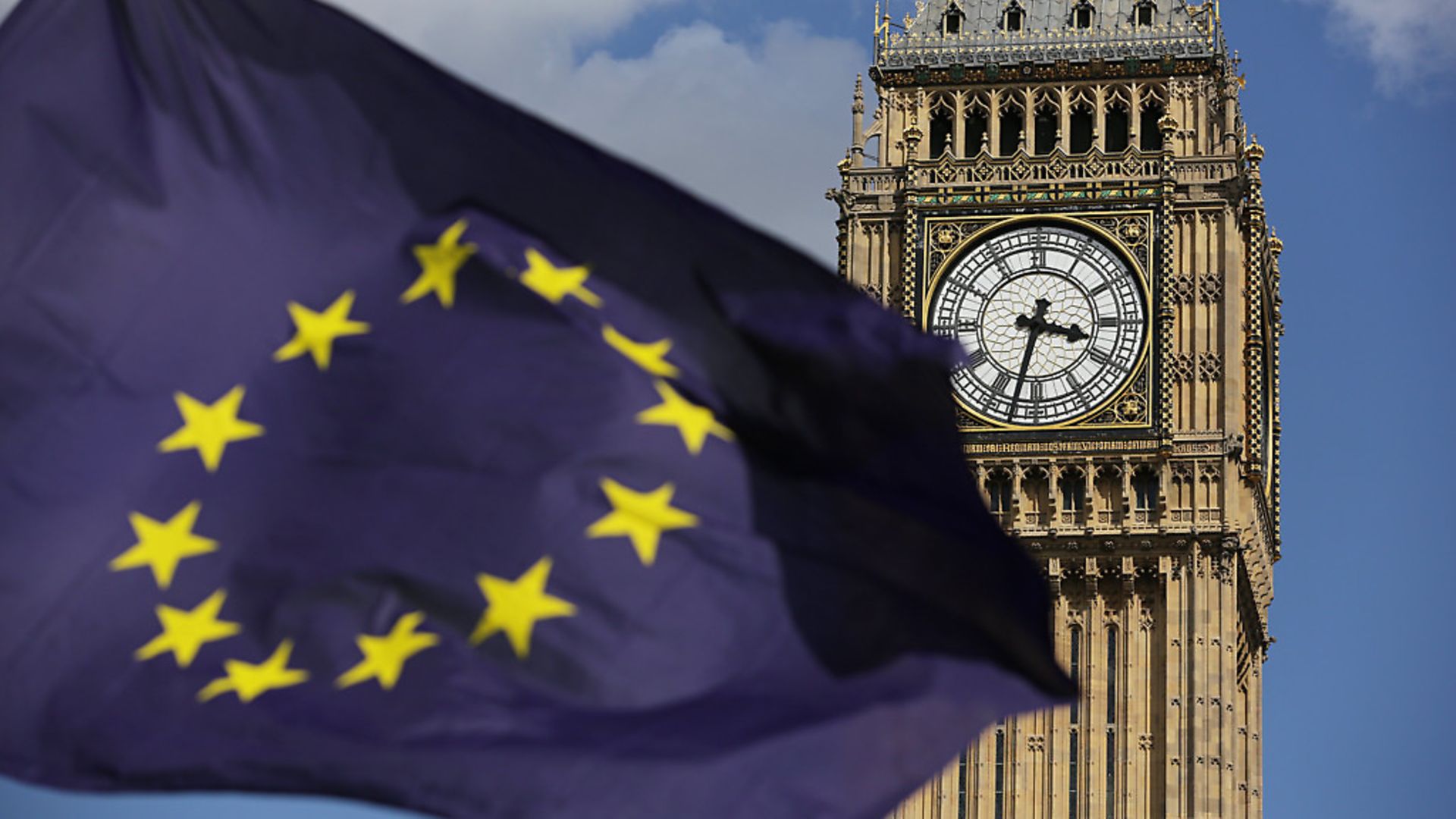After all the hassle and grief of Brexit, you can certainly understand why some EU members will be wary of any British attempt to rejoin (“Would Europe want us back”, TNE #327). And it is 99% certain we wouldn’t get such a favourable deal next time, with all the “cherry picking” past prime ministers were able to negotiate.
The Brexiteers have done immense, irreparable damage. But even so, we would definitely be far better off back in Europe than outside.
Martin Jones
Via Facebook
Dave Keating’s article on Europe looking sceptically at British hopes of rejoining shows exactly why Keir Starmer isn’t in a rush. You don’t burn down your bridges and then try to cross a raging river.
Jack Millard
Via Facebook
Great analysis by Dave Keating, reaffirming my belief that the best path to rejoining is a long and winding one, taking in closer alignment, then membership of the EEA/Efta before returning to full membership.
Taking our time will have several positive effects. Doubters will be able to see the increasing economic benefits of getting closer to the European Union with each step, the issue of rushing to judgment against the 2016 vote will begin to recede and, of course, the composition of the country will be changing as younger, more pro-European people either get the vote or become more likely to vote.
Carl Collison
Dave Keating discusses how the other kind of euro scepticism – opposition to Britain joining the common currency – would be challenged by the EU in any new alignment. The fact is the UK and Northern Ireland would be far better off as part of an enlarged eurozone, with lower transaction costs for individuals and business.
When the euro was launched the exchange rate was around £1.38 to one euro. Since then sterling has consistently fallen to lows of less than £1.10 with our biggest trading partner and is likely to get worse as our economic prospects get ever bleaker. We should welcome any opportunity to join the eurozone.
Brian McGavin
Wilmslow, Cheshire
By way of celebrating the benefits of Brexit on its three-year anniversary, I hoovered the house with my new turbo-powered vacuum cleaner and then cut the grass with my deregulated sit-on mower. Thirsty after all this exertion, I downed a beer from my Crown-embossed pint glass. Then I, erm, couldn’t think of anything else to celebrate.
Ed Lewis
Potters Bar, Herts
The government is perplexed as to why a million or more working age adults are missing from the workforce. (The Bank of England says that they are unlikely to return.)
May I suggest that one reason, hitherto overlooked, is that millions of pro-European voters remain quietly angry that they were cheated out of EU membership and had their European citizenship nullified. They have now “taken back control” and refuse to put their shoulders to the Brexiters’ wheel.
As the Polish proverb goes, the woes of Brexit Britain are “not my circus, not my monkeys”.
Dr Robert Drake
Swansea, Wales
The Tories will lose the next election. Then Starmer’s efforts to “make Brexit work” will fail and Labour will be blamed for the continued disaster of Brexit. Thus, the Tories will be back in office sooner than you would have thought possible.
If this sounds gloomy to you, remember that the Republicans should have been out of office for a long time after Watergate. Instead, Jimmy Carter was a one-term president.
Don Adamson
Bradford, West Yorkshire
Out of road
Jonty Bloom’s “Brexit’s flat battery” (TNE #327) sums up the stupidity of Brexit and folly of the government’s intransigence on trade. What is the point of setting up a business whose biggest market is the European car makers when you have already cut off access to those car makers?
Melissa Porter
Youth clubbed
In “Trouble at the millennials” (TNE #327), James Ball stopped short of two significant problems that millennials face. Firstly, the house price to earning ratio for earlier generations was around 3.5 versus eight today. Secondly, the divergence of house price growth from earnings is nothing to do with savvy investment by prior generations, but rather a factor of monetary policy which has supported cheap debt, which supports asset bubbles. But that is difficult for those who worked very hard through life to understand.
Sadly, both main political parties are guilty of failing to address this problem and progressive ideas such as asset wealth and inheritance tax paying for older age care get torpedoed as “‘dementia taxes”. If we want younger people to be truly engaged in politics, stop devising policies that speak to the older voters and offer actual, meaningful change.
K White (Millennial, by the skin of the teeth)
I was quite moved by “Trouble at the millennials”. It should be required reading for those who bore on that the young could get a mortgage if they gave up Netflix and Starbucks.
Young people in this country deserve a reset and as James suggests, maybe they will be the generation that dares to bring one.
Morgan Hartley
I was reading “The Tories’ immoral maze” by James Ball (TNE #326) quite normally until I reached the end of the fifth paragraph. Call me shallow, but reading the word “reciprocity” conjured up an alarming image of sleazy politicians forming a cabaret chorus line singing Mama Morton’s wonderful number When You’re Good to Mama from the musical Chicago.
After Nadhim Zahawi’s departure, another line from the same musical seemed appropriate: “He had it coming …”
Sue Wall
Broadstairs, Thanet
Holy smoke
Paola Totaro thoroughly explains the various intrigues, theological, financial, sexual and personal, in the “Holy war in the Vatican” (TNE #327).
It was so much more straightforward in olden days. The “Holy war” would have been settled between the two popes, as Pope and Antipope, followed by mutual excommunication, schism and warfare: all over in a few decades, centuries or millennia, as the case may be.
Richard Eames
Crosby, Merseyside
Sour move
Nigel Warburton on the plight of bees suffering in the long term from the shortsighted use of neonicotinoid pesticides in the UK (“Everyday Philosophy”, TNE #327) made sorrowful reading, particularly after the i newspaper reported that since Brexit, the British sugar beet farmer is no longer protected by Brussels’ determination to protect its sugar beet producers from competition. I quote:
“The government has loosened that policy. In 2021 it announced a 260,000-ton tariff-free quota for sugar cane, while the UK-Australia trade deal included a further 80,000-ton quota, which will increase by 20,000 tons every year until 2030. As a result, Brazilian and Australian imports have surged with Brazil going from zero imports to over 160,000 tons by 2021.”
I don’t know whether to laugh or cry. Probably, neither do the sugar beet farmers.
Kath Levell
Pembrokeshire, Wales
Word games
Peter Trudgill’s article (TNE #327) on metathesis (transposition of sounds within words) was fascinating, as usual. My wife has always transposed a particular pair of sounds between words: if she goes to the shop, buys a loaf of bread, and returns home with it, she will say: “I brought a loaf at the shop and have bought it home.” I suspect this is a transposition peculiar to the Black Country (she was brought up, or as she would say, bought up in Dudley), but would be interested to know more.
Ian Hankinson
Munslow, Shropshire
Money talks
Alastair Campbell’s love of Burnley FC and his admiration for the town’s Bank of Dave, now immortalised by Netflix (TNE #326), reminded me of a good omen that Dave Fishwick once told me had happened on the first Saturday after his bank had been allowed to take money from all-comers.
The first depositor turned out to be Betty Lord, daughter of Bob Lord, the unforgettable chairman of Burnley in its most glorious days. He told me: “She put her hand on mine and told me she knew her money would be safe with me, that she wanted me to take her savings and do good things with it. ‘I want to be the first,’ she said, and handed a cheque for a substantial sum of money. “For the next three hours, the queue was constant. I had ordinary folk from all walks of life queuing out the door to hand over their money, entrusting it to Bank of Dave. In the first three hours, we’d taken nearly £62,000 of local people’s money.”
When I interviewed Dave, I bit my lip to avoid asking him Bertolt Brecht’s killer question from The Threepenny Opera: “What’s the difference between robbing a bank and founding one?” The answer, of course, was Dave Fishwick and the Burnley Savings and Loan.
Andrew Rosthorn
Tockholes, Lancashire
Here’s another item for Alastair Campbell’s list of post-Brexit buggerations: the continuing presence in our ears and on our screens of an incompetent liar still under investigation for misleading parliament.
Fortunately, his latest publicity-seeking outing to Ukraine was upstaged by the scandals coming out of Downing Street, and I am sure I’m not the only one who does not believe a word he says about his phone call with Putin. These pathetic attempts to distract attention from his dodgy loan and appointment of the BBC chairman are as well-crafted as his writing.
PS: I managed that without even mentioning his name …
Rex Nesbit
State secret
Bonnie Greer gets it in one (TNE #326): “Way too many people not only have no knowledge of the British constitution, they’ve actually never heard of it.” To this should be added, they’ve never been taught it. Whereas in the US not only is there a written constitution but it is taught in schools.
In Britain, we have an alchemic version. The best account of it I have come across is from historian Anthony Hawkins: “Bagehot saw ‘the efficient secret’ of the British constitution in the nearly complete fusion of executive and legislative powers with the cabinet, answerable to parliament as the connecting link. The cabinet had to submit to both Houses the measures it wished adopted.”
The House of Lords has been awaiting reform since 1911. The House of Commons operates with a mandate for government with just over 30% of the electorate. We seem to have drifted into a plutocracy with more citizens dependent on the administrative state. We have a head of state yet to be tested by such demands as proroguing parliament, as was assented to by the last monarch. Bonnie Greer predicts we’ll have a crisis of democracy here, even worse than the US. Keir Starmer has made a manifesto commitment to bring in an elected upper chamber. Now we require a plan.
I suggest decentralisation creating eight English regional assemblies elected by PR, on the lines of the Welsh assembly. They send delegates alongside those of the devolved nations to a new Upper Chamber. This is given legislative powers to evaluate economic policy – such as Truss and Kwarteng’s cunning plan – for its impact across the UK. It is a mixed blessing that it was the “markets” that exercised the veto.
Sam Whimster Bromley,
Greater London



